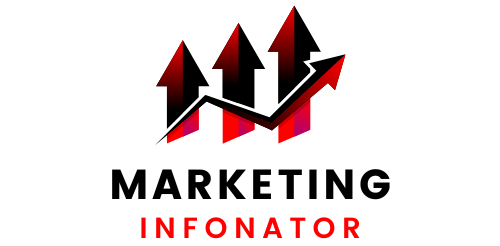Clear Brand Identity: Developing a clear brand identity is essential for creating a lasting impression. This includes designing a visually appealing logo that encapsulates your brand’s essence. Choose a color palette that aligns with your brand’s personality and evokes the desired emotions. Additionally, establish a unique brand voice that communicates your values, mission, and resonates with your target audience. Consistency across all brand touchpoints, from your website to your social media profiles, helps build recognition and trust.
Target Audience Analysis: In-depth understanding of your target audience is the cornerstone of successful marketing. Research their demographics (age, gender, location), psychographics (values, interests, lifestyles), and pain points. This knowledge enables you to create tailored marketing campaigns that address specific needs, desires, and challenges of your audience. This leads to more personalized and impactful communication.
Content Marketing: Content marketing involves creating and sharing valuable, informative, or entertaining content that engages your audience. Start a company blog and publish articles relevant to your industry, products, or services. Videos, infographics, and podcasts are also powerful content formats. Consistency is key; regular updates showcase your expertise and keep your audience engaged, while also improving your website’s search engine visibility.
Social Media Engagement: Social media platforms offer direct access to your target audience. Create a social media strategy that aligns with your brand’s voice and objectives. Post a mix of promotional content, educational posts, behind-the-scenes glimpses, and user-generated content. Respond promptly to comments, messages, and mentions to foster a sense of community and build genuine connections with your audience. Paid social media advertising can help expand your reach and target specific demographics.
Influencer Collaborations: Partnering with influencers can provide an effective shortcut to reaching a broader audience. Identify influencers who align with your brand and have a significant following within your niche. Collaborations can involve product reviews, sponsored posts, or co-created content. Influencers’ endorsements lend credibility and can introduce your brand to their loyal followers, leading to increased visibility and potential customers.
Email Marketing: Email marketing remains a powerful tool for nurturing customer relationships. Build an email list by offering valuable content or incentives in exchange for subscribers’ contact information. Segment your list based on demographics, behaviors, or interests to send targeted campaigns. Craft engaging and personalized email content, including newsletters, product updates, and exclusive offers. An effective email strategy keeps your brand top-of-mind and encourages repeat business.
Search Engine Optimization (SEO): SEO involves optimizing your website and content to rank higher in search engine results. Research relevant keywords that your target audience is likely to search for and incorporate them naturally into your website copy, blog posts, and other content. High-quality, informative, and regularly updated content improves your website’s authority, making it more likely to appear in organic search results and attract organic traffic.
Pay-Per-Click Advertising (PPC): PPC advertising allows you to bid on keywords and display ads to a specific audience on platforms like Google Ads or social media networks. Develop targeted ad campaigns that align with your audience’s search intent or demographics. Monitor your campaigns’ performance and adjust your bidding and targeting strategies based on the data. PPC can yield quick results by driving traffic to your website or specific landing pages.
Customer Reviews and Testimonials: Positive customer reviews and testimonials serve as social proof of your brand’s credibility. Encourage satisfied customers to leave reviews on platforms like Google, Yelp, or Trustpilot. Showcase these testimonials on your website and marketing materials. Authentic feedback from real customers can alleviate concerns potential buyers might have and build trust in your products or services.
Analytics and Data Tracking: Implement analytics tools like Google Analytics to measure the effectiveness of your marketing efforts. Monitor key performance indicators (KPIs) such as website traffic, conversion rates, click-through rates, and engagement metrics. Analyze this data to identify trends and patterns, enabling you to make informed decisions about refining your marketing strategy. Regular analysis helps you optimize campaigns, allocate resources wisely, and achieve better results over time.

